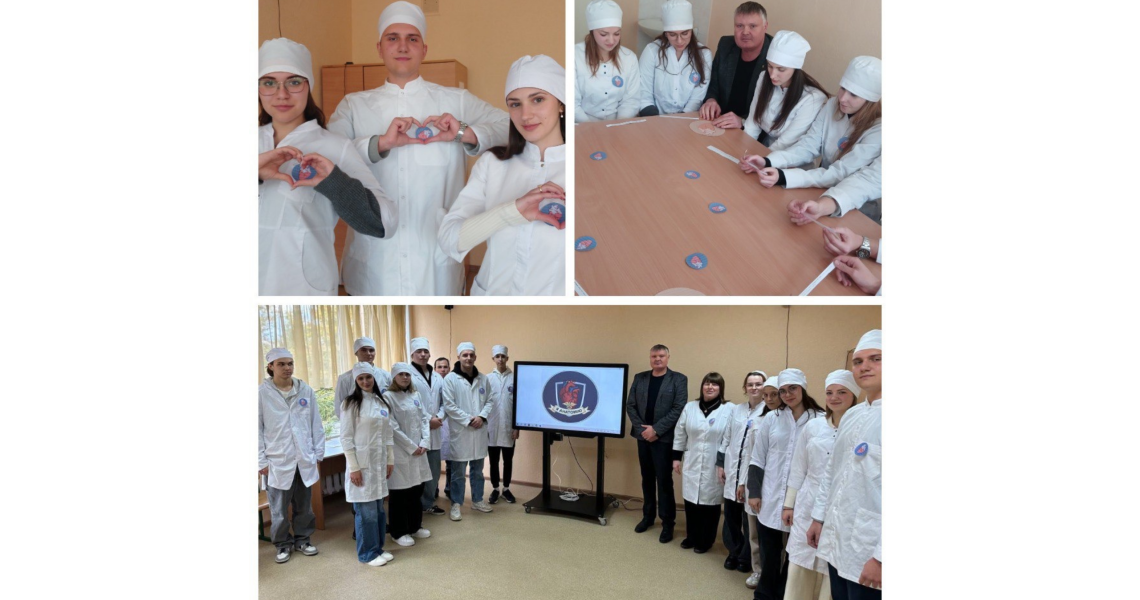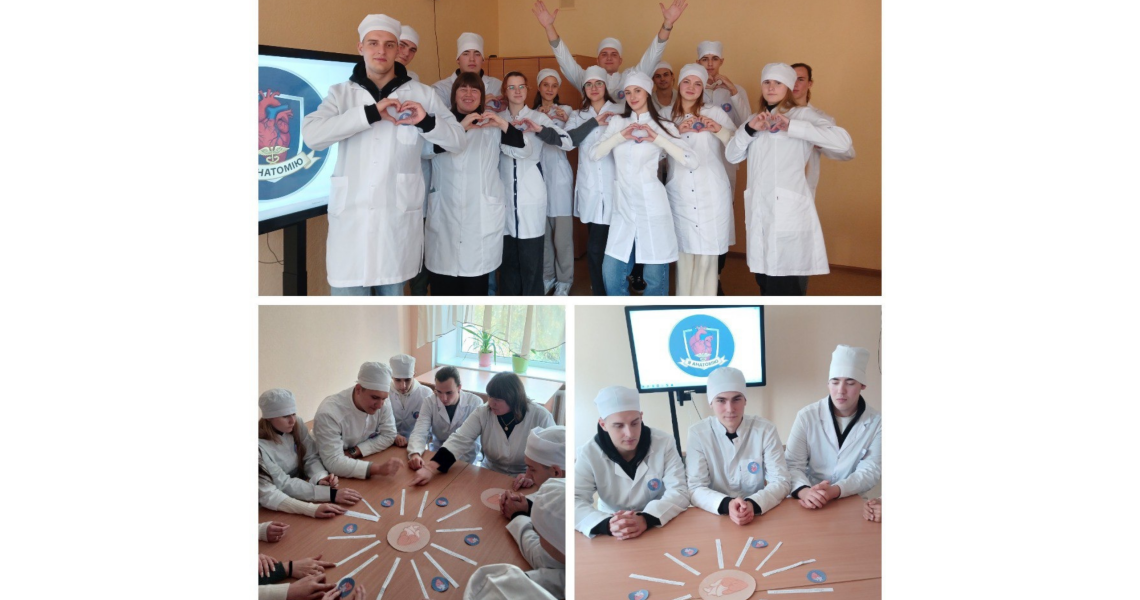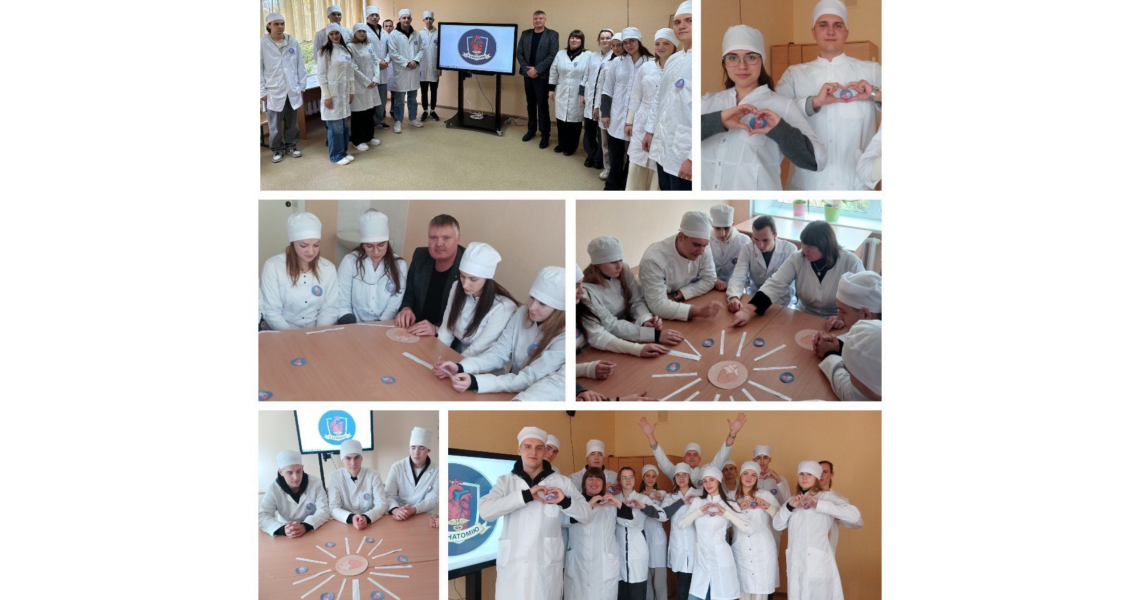До Всесвітнього дня анатомії на кафедрі анатомії людини ПДМУ відбувся круглий стіл на тему «Серце – центр життя: анатомія і символіка», метою якого було поглиблення знань студентів про будову серця та його символічне значення в культурі.
У заході взяли участь доцент кафедри Валентина Білаш та здобувачі вищої освіти медичного факультету № 1. Вони обговорили унікальну будову, фізіологічну роль і культурно-символічне значення серця – органу, що з давніх часів вважається осередком життя, любові та духовності.
З вітальним словом виступив завідувач кафедри анатомії людини Володимир Гринь. Він підкреслив важливість глибокого розуміння анатомії серця не лише з наукової, але й із гуманістичної точки зору.
Студенти не лише розглядали анатомічні особливості серця, а й обговорювали вислови про нього, їх символічний зміст і роль у формуванні духовних цінностей людини: «Серце підказує краще за розум», «Тепло людського серця – найдорожчий дар», «Без серця – і знання мертві» та інші. Захід сприяв популяризації анатомії як науки, розвитку міждисциплінарного мислення та формуванню професійного світогляду майбутніх медиків.
Прес-служба Полтавського державного медичного університету
Round Table “The Heart – The Center of Life: Anatomy and Symbolism”
To mark World Anatomy Day, the Department of Human Anatomy at Poltava State Medical University held a round table discussion titled “The Heart – The Center of Life: Anatomy and Symbolism.” The event aimed to deepen students’ knowledge of the structure of the heart and its symbolic meaning in culture.
The discussion was attended by Associate Professor Valentyna Bilash and students of Medical Faculty No. 1. Participants explored the unique structure, physiological role, and cultural-symbolic significance of the heart — an organ that since ancient times has been regarded as the seat of life, love, and spirituality.
With welcoming remarks, Head of the Department of Human Anatomy, Volodymyr Hryn, emphasized the importance of understanding the anatomy of the heart not only from a scientific but also from a humanistic perspective.
Students not only examined the anatomical features of the heart but also discussed quotations about it, their symbolic meanings, and their role in shaping human spiritual values, such as:
“The heart knows better than the mind,”
“The warmth of the human heart is the most precious gift,”
“Without the heart, even knowledge is lifeless.”
The event promoted the popularization of anatomy as a science, encouraged interdisciplinary thinking, and contributed to the professional and ethical development of future medical professionals.








